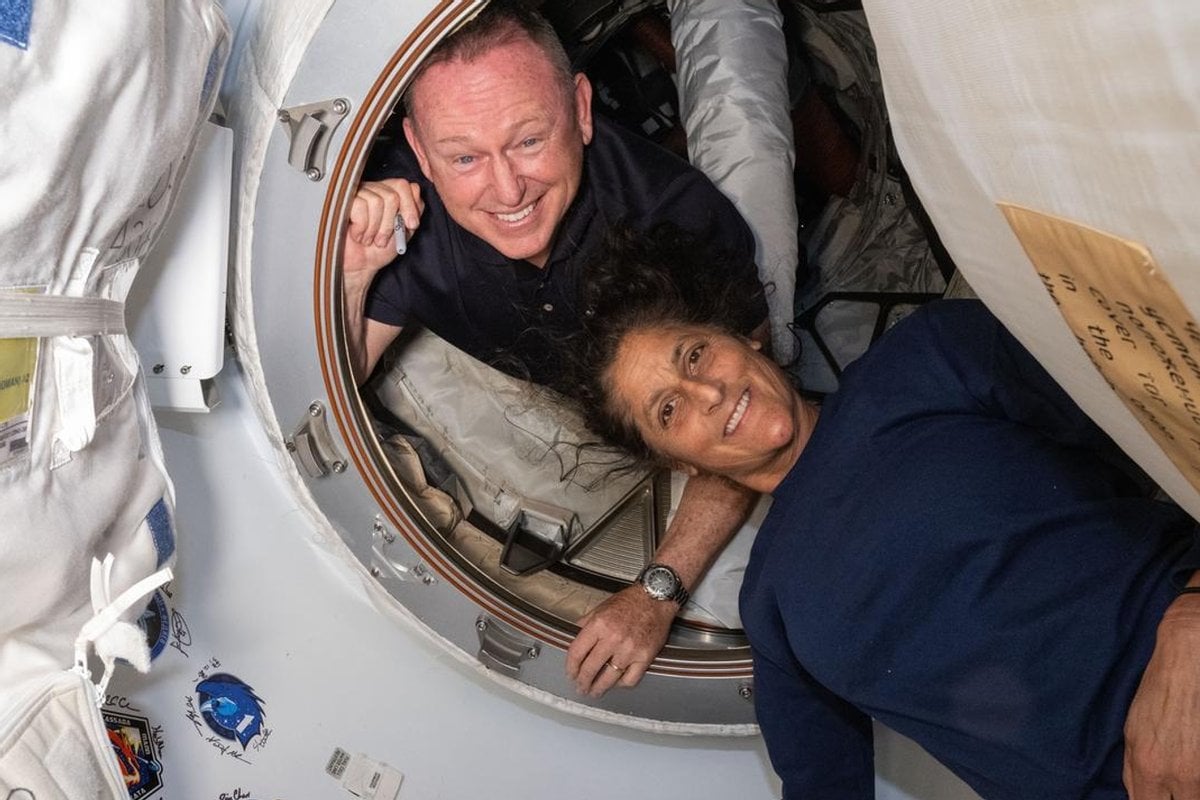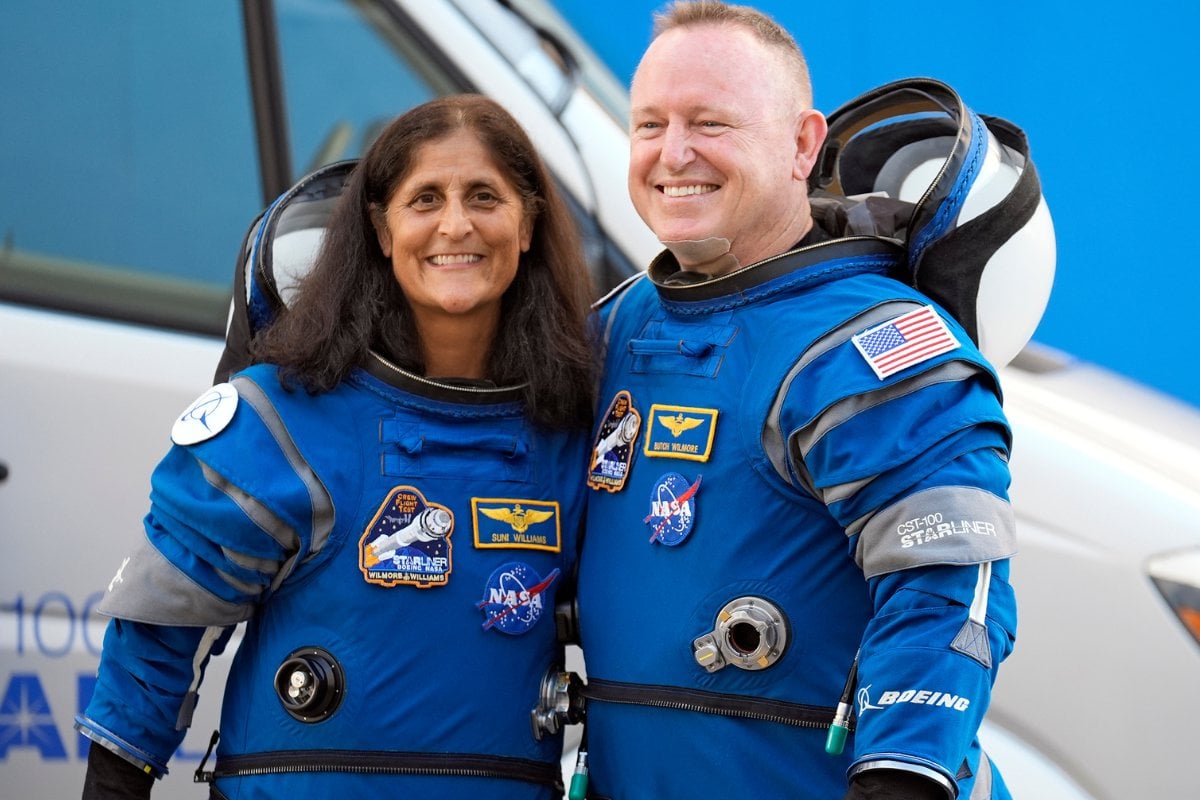
Astronauts Sunita "Suni" Williams and Barry "Butch" Wilmore are both veteran professionals when it comes to all things space.
As NASA astronauts and former US Navy test pilots, the pair were thrilled when they were selected to go to the International Space Station (ISS). They were told they'd spend eight days at the ISS, before heading back down to Earth.
Those eight days passed... and so did another eight days. And then another.
It's now been almost 70 days since Williams and Wilmore arrived at the ISS. Now they've just been told they might not return to Earth until 2025.
So... are the astronauts stuck in space?
The short answer is yes, kind of.
The International Space Station has been orbiting Earth since 1998, and it's a large spacecraft that serves as a base where crews of astronauts and cosmonauts live while studying space (very generally speaking).
Several nations worked together to build and use the space station, primarily Russia and the US. That's where Williams and Wilmore come in.
They were launched aboard the Boeing Starliner spacecraft, which is designed to transport crew to and from the ISS and other low-Earth-orbit destinations, on June 5, 2024.
The next day they arrived safely at the ISS, where they were supposed to work and stay for approximately eight days.
Watch: Jeff Bezos in space. Post continues below.

